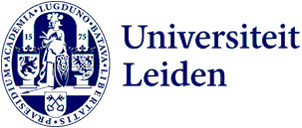
Thesis on public policy in vulnerable neighbourhoods wins FSW thesis prize 2023
With 'The unruly reality of a new government: Navigating between networks and serving in a 'vulnerable' neighbourhood', Mony Klaus has won the FSW Thesis Prize 2023. Written as part of the Master's programme in Cultural Anthropology and Development Sociology, the thesis examines how a new government works in practice.
A lack of solidarity
Mony studied the practical implementation of a new government called 'New Public Governance' for the Masters in Sociology of Policy in Practice as part of the research project Crafting Resilience. This government aims to meet the needs of vulnerable citizens through an integrated, equal and area-based approach. A relevant and timely topic, Mony explains. "I chose to research government action in a vulnerable neighbourhood because I believe our current society lacks the principle of solidarity. At a time when we are facing multiple crises, think of the climate crisis, the education crisis, the livelihood crisis, the housing crisis, it is important to have solidarity with the most vulnerable among us. It is the role of government to also, perhaps especially, protect and safeguard vulnerable citizens from these crises."
Integral partnership between governments and citizens
For this research, Mony spent three months working with six employees of a local programme office in a vulnerable neighbourhood. This neighbourhood, like 19 others, is part of the National Livability and Safety Programme (NPLV) of the Ministry of the Interior and Kingdom Relations. The programme office was set up specifically to improve the neighbourhood's livability and safety over a 20-year period. NPLV is a manifestation of the new government and, according to Mony, it means that the government is taking action to promote solidarity in Dutch society. In her thesis, Mony shows that putting the new government into practice is difficult because of a number of dilemmas that make it difficult for governments, organisations and residents to work together.
Heavy burden on officials
Mony is keen to emphasise that the task of putting a new government into practice falls heavily on the shoulders of local officials. "The staff at the programme office are working day in, day out, with all their might to make the ministry's plans a success. Every professional I spoke to feels a strong responsibility to help the residents. However, the reality on the ground is harsh and complicated, and navigating the unfamiliar terrain of a new, integrated and equal government takes a long time." Her research shows that this is mainly because there is still little structure and clarity within the local network about who has responsibility, there is still no clear answer to the question of how to make and implement policy in an inclusive and equal way, and local officials tend to take a subordinate role towards residents out of a sense of moral duty.

It is worth stepping out of your own bubble
During the Master's programme in Policy in Practice, Mony learned how valuable it is to step out of one's own bubble from time to time. And to have conversations with people you would not normally come into contact with. "Such conversations not only provide a deeper understanding of your own position in our society, but also have a positive effect on all the (pre-)judgements you have about others as people. I have learnt that differences, and the sense of misunderstanding that often accompanies them, can be left to individual, personal conversations. I have also learnt how valuable true listening can be, and that as a white, Dutch, highly educated woman, I have to be aware that I have sometimes had a bit of wind in my sails."
Traineeship at the Ministry of the Interior and Kingdom Relations
Mony now works as a government trainee at the Ministry of the Interior and Kingdom Relations. Her experience as a researcher in a vulnerable neighbourhood made her realise that she wanted to contribute to public affairs by working towards a government that has an eye for all its citizens. "The traineeship gives me the opportunity to find out from which workplace I can best contribute to this, as I get to work in four places inside and outside the ministry over the next two years".
Tip for students: take the time to get to know your field of research
Finally, a tip for students who are also doing a master's internship. Mony: "Take the time to experience your field of research with an open mind. Above all, keep asking yourself what is going on. I think it's important in life to keep wondering. And of course, enjoy all the new people you meet and situations you find yourself in."
FSW Thesis Prize
Every year, the Faculty of Social Sciences awards two thesis prizes: one for the best Master's thesis and one for the best Research Master's thesis. A jury within the Faculty selects the theses nominated by the institutes. After selection, the jury submits the theses, together with the jury reports, to the Faculty Board for approval. The prize consists of €1,000 and a certificate.
From the jury report
The jury was impressed by Mony's thesis. She skilfully combined public administration and anthropology to discuss a socially important topic. Mony wrote in a clear and fluent style, offering a critical yet constructive perspective on policy processes and practice. Her work demonstrated empathy and compassion. Using interviews, document analysis and participant observation, Mony took a careful and holistic approach, maintaining a balance that did justice to the complex research issues without overshadowing her own observations. This demonstrated an excellent range of anthropological skills.
